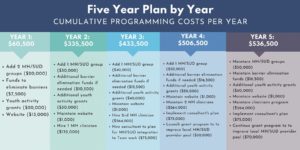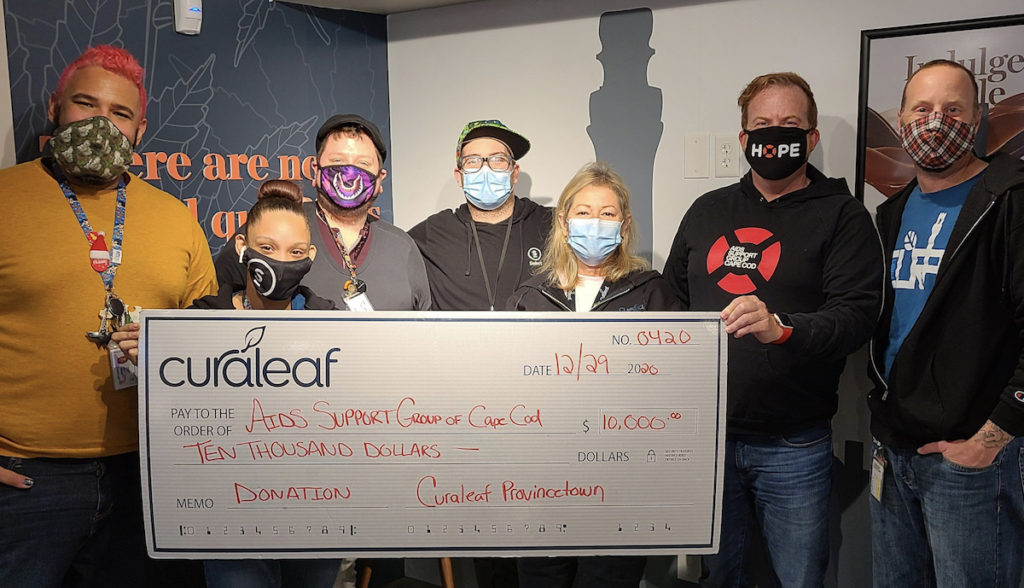PROVINCETOWN — With three recreational marijuana shops now open, at least two more on the way, and an edibles production facility in the works on Court Street, Provincetown’s adult-use marijuana sector has blossomed since the first two retail outlets opened here in 2020. Now, local tax receipts show the harvest: $10 million in total sales has produced $610,000 in new revenue for the town.
The numbers reflect a strong start across the last four quarters, split between Curaleaf’s Provincetown location, which opened in February 2020, and B/well, which opened in September 2020. The third pot shop to open, Hennep, appeared too late in the fiscal year to have much effect on the town’s take.
Provincetown receives 3 percent of pot shop sales through a state-collected local-option tax, which brought in $310,000 over the four quarters of fiscal 2021. Another 3 percent of sales is paid directly to the town as host community fees negotiated with the stores, which netted another $300,000 over 12 months. (The two numbers differ slightly because host community fees and sales tax quarters don’t correspond to identical periods of time.)
How to Spend It
The 3-percent local-option marijuana tax is General Fund money that can be spent for any municipal purpose. Last week, Town Manager Alex Morse told the select board that the committees administering the town’s two existing housing funds, the Community Housing Council and the Year-Round Market-Rate Rental Housing Trust, want to talk about the new marijuana tax revenue as well as the new short-term rental tax revenue.
The 3-percent host community fees, in contrast, are supposed to offset the costs to the town of hosting the pot shops.
That’s why Provincetown is seeking to direct that revenue toward social programs, according to Assistant Town Manager David Gardner. Those would include, he said, “substance abuse programs, mental health programs, social and community programs, and public safety and crowd control programs.”
How the host community money is used this year could affect the town’s standing to secure the same funding two years from now. Provincetown’s host community agreements will be up for renegotiation in 2023.

Meanwhile, community impact fees are being contested elsewhere in the state, including in a lawsuit brought by a dispensary owner in Haverhill. And the Cannabis Control Commission has asked the legislature for the power to regulate the host community agreements between towns and dispensaries.
Health Director Morgan Clark outlined a mental health program to the select board last spring that would cost half a million per year if fully funded. The largest line item is $250,000 per year for two full-time mental health clinicians who could act as crisis counselors in the community, seeing people immediately and regardless of ability to pay.
“There are very long waitlists for almost all of our mental health clinicians here,” Clark said.
“This is not looking to supplant the behavioral health wing of Outer Cape Health Services,” she added, but “we all see this need.”
The plan also includes funding for up to five mental health and substance use disorder support groups, and a grant program to expand the pool of mental health clinicians here. That program could support outreach, recruitment, and even relocation assistance programs to help bring mental health practitioners to Provincetown.
The Pot Economy in Context
The $610,000 in pot revenues is good news in an otherwise tough year — the quarters in question include significant parts of last year’s Covid spring and summer and were some of Provincetown’s worst quarters ever.
Meals tax revenue, which is collected in all the town’s restaurants and bars, was down one-third in that same period, compared to fiscal 2019, the last fully pre-pandemic year.
The state’s rooms tax recently began to apply to short-term rentals, which complicates comparisons across years. But the state supplied the Independent with a breakdown of rooms tax into revenue from short-term rentals versus revenue from traditional lodgings that had been taxed previously. Those numbers show that tax revenue from traditional lodgings was down 35 percent in those four quarters, compared to fiscal 2019.
Ten million dollars in sales is a strong opening for new businesses in a new sector in town. For comparison, tax figures show that the entire hotel sector in Provincetown, excluding short-term rentals, had about $24 million in sales in the fiscal year that just ended (that figure is down from $37 million in pre-pandemic fiscal 2019).
The entire restaurant and bar sector had about $58 million in sales in fiscal 2021 (down from $87 million before the pandemic).
The last year for which Provincetown’s tourism director Tony Fuccillo has general sales tax data is 2017. In that year, the entire retail sector, excluding clothing articles not taxed, had $38 million in sales.
The pot sector is changing fast, with new shops opening in Wellfleet and Eastham and almost every retailer on the Outer Cape diversifying into cultivation, edibles production, or both. The fortunes of individual operators will surely vary greatly, but it seems clear entrepreneurs think Provincetown’s pot industry has room to grow.


